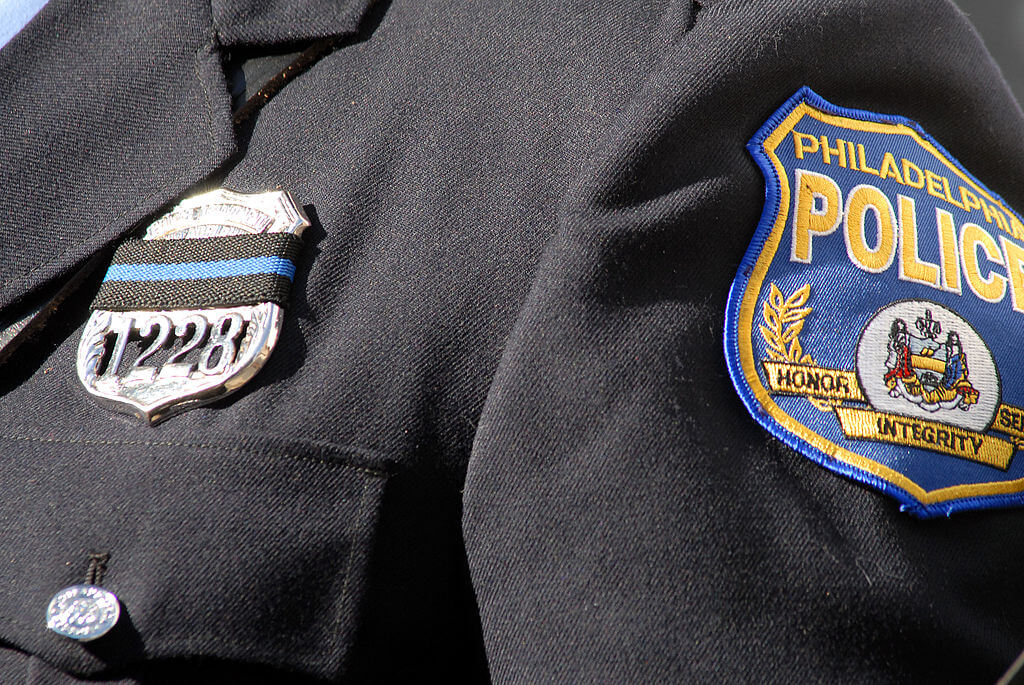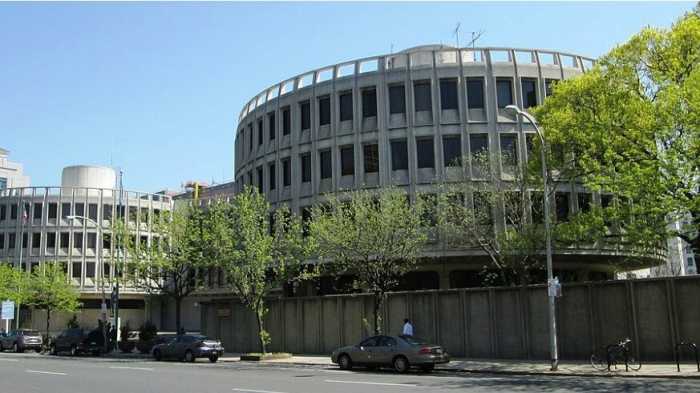For the first time ever, Philadelphia residents had the chance to weigh in on the city’s labor negotiations with the Fraternal Order of Police.
Nearly 100 people signed up to speak, and during an hours-long City Council meeting on the subject, they expressed frustration with the Philadelphia Police Department’s disciplinary set-up and suggested possible reforms.
Interest in law enforcement overhauls has, evidently, not waned, following the police shooting deaths of George Floyd in Minneapolis and, more recently, Walter Wallace Jr. in Philadelphia.
Councilwoman Katherine Gilmore Richardson, who introduced legislation calling for the hearing, said contract talks are being laid out in the open, after having been “shrined in secrecy for far too long.”
“This is a truly historic day in the City of Philadelphia,” she said at Wednesday’s meeting. “It is my hope that what we hear today has a significant impact on how the administration designs its final proposal.”
Notably absent from the virtual gathering — anyone from the Fraternal Order of Police Lodge 5, which represents all PPD officers.
They declined an invitation to participate in the hearing, according to an FOP spokesman.
“We don’t bargain or negotiate in public,” John McNesby, the union’s president, said Wednesday in a statement. “It’s business as usual for us on the contract front.”
Last month, the FOP filed a lawsuit seeking to have Gilmore Richardson’s bill invalidated. They argued that the hearings interfere with state law and unfairly target their union. The case is still pending.
McNesby’s team is expected to begin formal negotiations with Mayor Jim Kenney’s administration in December, after the sides reached a deal on a 1-year contract in March to avoid a labor dispute during the start of the COVID-19 pandemic.
A focus of Wednesday’s hearing was the Police and Firemen Collective Bargaining Act 111 of 1968, which established a contractual arbitration process. In exchange, officers and firefighters were prohibited from going on strike.
After negotiating for at least a month, the city and FOP identify issues of contention and send them to a three-person arbitration board. One member is picked by the union, another by the city, and the third is independently selected.
There is a separate process, heavily criticized by reformers, where a single arbitrator considers an officer’s appeal of a disciplinary action.
In both instances, the arbitrators’ decision is binding and final.
Kenney’s labor department said his administration is planning to seek several significant changes in the FOP’s next contract.
Among the provisions circulated in draft proposals are allowing the police commissioner to transfer officers at-will; expanding the use of civilians within the PPD; and expanding the pool of arbitrators.
Several council members raised questions about the demographics of the arbitrators.
Both sides are statutorily obligated to pull from the American Arbitration Association. About 75% of its membership are white men, according to the organization’s website.
State Rep. Donna Bullock said she is hoping to advance legislation in January that would make sweeping changes to Act 111, including allowing Court of Common Pleas judges to select arbitrators from the local legal community.
Officials from the mayor’s office said they also plan to push for alterations to disciplinary proceedings.
The Kenney administration wants arbitrators to be prohibited from overturning the police commissioner’s penalties. Sometimes, officials said, an arbitrator will decide an officer is guilty of the offense but change the disciplinary action — for instance, they may allow the officer to stay on the job.
In addition, the city wants to reimpose a rule requiring that officers live in Philadelphia. The protocol would apply to all new hires, and it’s expected to face heavy blowback from the FOP.
Since 2012, officers with 5 years of experience or more have been able to move outside the city.
Earlier this year, City Council passed legislation requiring all civil servants, including PPD employees, to live in the city for at least one year prior to the start of their employment.
Residents who testified at the meeting suggested a number of ideas, including the release of all disciplinary documents, having City Council approve the FOP contract and even giving the public the opportunity to vote out specific officers.
Above all, they asked for accountability and transparency.
“The current provisions within the contract and discipline code do not hold officers accountable for serious harm against fellow officers, nor against our community members,” said Erin Hurt, an educator who lives in West Philadelphia.
Some recalled incidents of violence involving officers, such as being hit by tear gas or beaten during protests over the summer.
A fifth grade girl who attends Mastery Charter Harrity Elementary in West Philadelphia was told to speak up after announcing her name.
“I’m a believer that not all police officers are bad,” she said. “However, I do see that it seems the police officers in my neighborhood tend to use excessive force when it comes to those who look like me.”




























